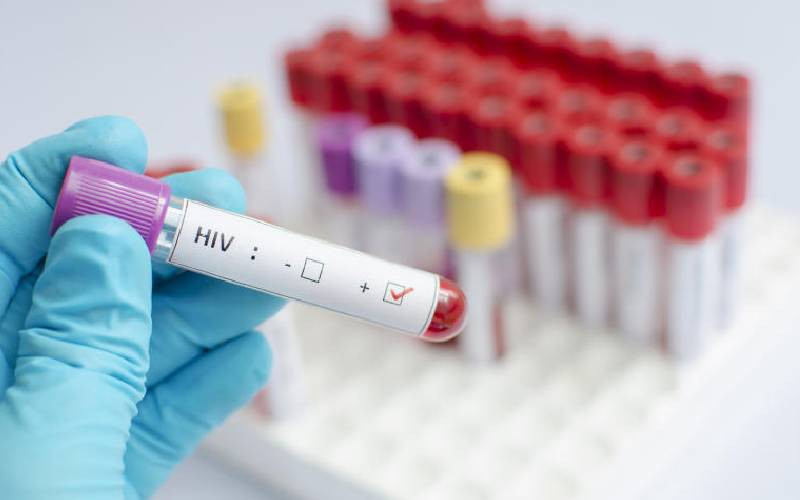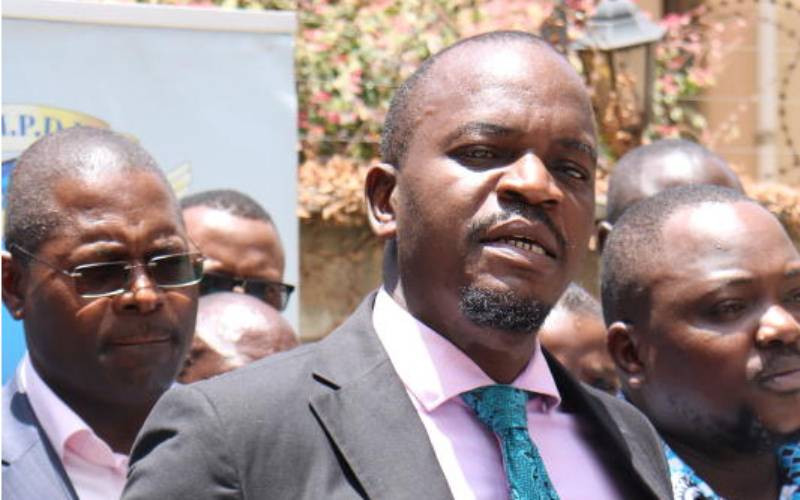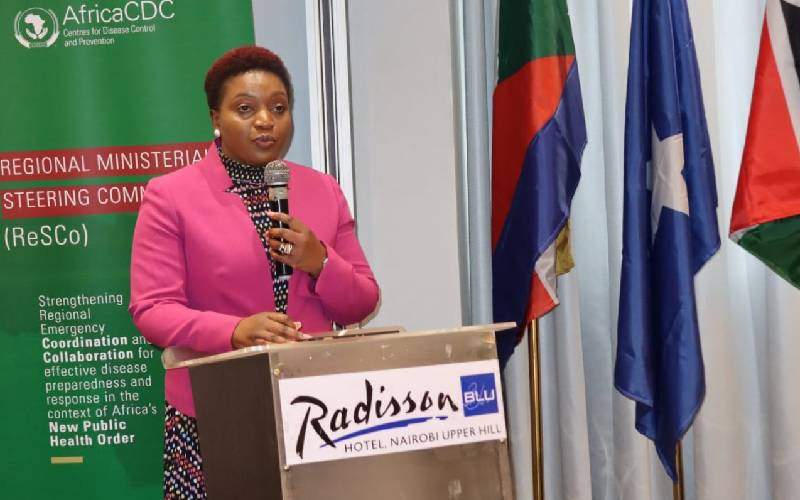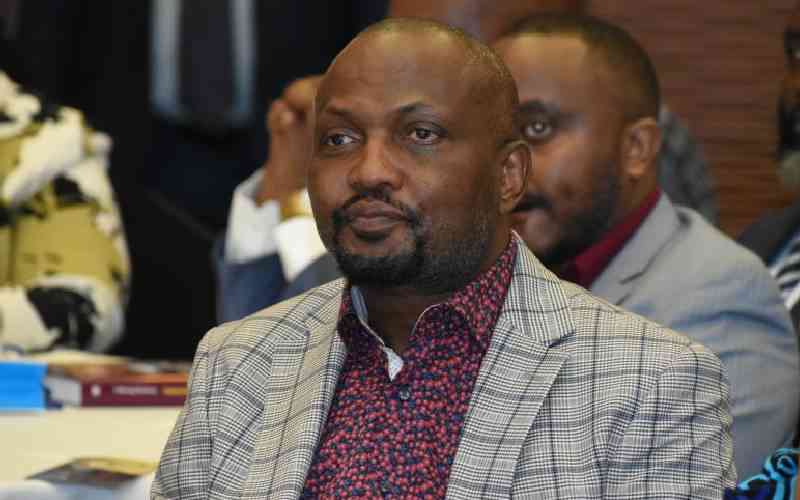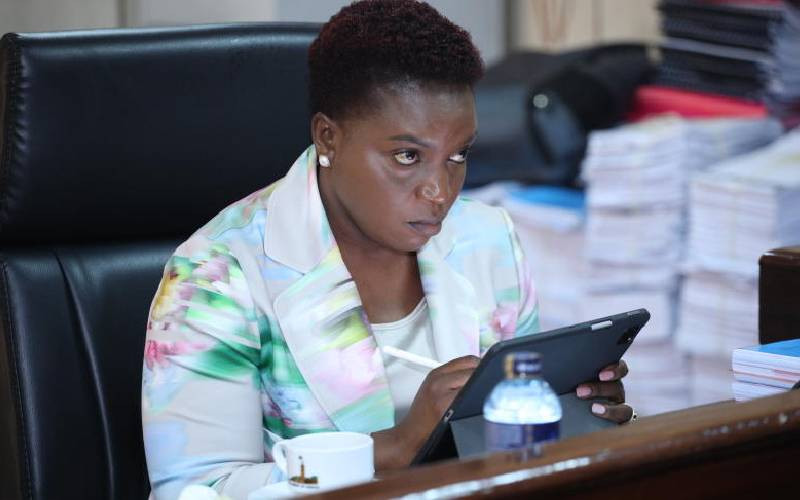
Health Cabinet Secretary Susan Nakhumicha has called for a review of the health budget to enable the Kenya Kwanza administration to achieve its health agenda.
Appearing before the Departmental Committee on Health at the National Assembly, Nakhumicha said the allocation of more resources will make it easy to attain the Bottom Up Economic Transformation (BETA) projects.
The key areas under BETA include Health Commodities Security, Health Financing, Human Resources for Health, and Integrated Health Management Information Systems.
CS Nakhumicha told the Health Committee chaired by Robert Pukose that failure to increase the budgetary allocation may fail the health agenda, and therefore subject Kenyans to pain of accessing healthcare.
"For the ministry to achieve the above targets, the budgetary ceiling for the health sector will need to be revised upwards for the benefits spelt out to reach the citizens, otherwise we will remain with very good policies that are not funded,” Nakhumicha told the health committee.
- 68 midwives trained on best practices to improve maternal healthcare
- New offices and appointments illegal, PSC tells Nakhumicha
- Ministry of Health seeks EACC's support to strengthen, implement UHC
- Why access to affordable drugs holds the key to achieving UHC
Keep Reading
For example, she said operationalisation of the Primary Healthcare Fund which is fully publicly financed is not funded in the sector ceiling while Emergency, Chronic and Critical Illness Fund has only seen allocated Sh500 million only for operationalising the fund.
Under the 2023/24 financial budget, the ministry was allocated only Sh121.9 billion, against a requirement of Sh309.4 billion.
The allocation, according to the CS, comprises Sh66.8 billion in recruitment and Sh55.1 billion in development.
“The overall funding gap to the State Department is Sh187.5 billion,” she said.
Nakhumicha said the historical underfunding of salary budget in Semi-Autonomous Government Agencies (SAGAs) particularly in referral hospitals coupled with the establishment of new specialised hospitals means that there is a need to increase funding.
The funding will cater for employment and retain health workers to ensure the optimal provision of specialised health services.
“In many instances, continued use of a large percentage of internally generated revenues to pay salaries has affected the ability to provide quality services to patients,” added the CS.
According to the budget policy statement, for the current 2023/24 financial year, the state Department has a budget of Sh110.6 billion made of Sh66.4 billion under recurrent and Sh44.3 billion under development.
The absorption status for the actual expenditures as at the second quarter is at 90.7 per cent for recurrent and 62.4 per cent for Development (Commitments).
The State Department is fast-tracking the implementation of the programmes to ensure 100 per cent absorption rate by the close of the financial year.
“It should be noted that the inaccessibility of the exchequer from July 2023 to January 2024 for the Development budget has affected the absorption rate. The State Department is however fast-tracking implementation of the budgeted programmes since the full budget has been provided,” said the CS.
The Pukose-led committee further asked the ministry to prioritise domestic funding amid dwindling donor support.
Kenyan health system heavily depends on donors to fight three killer diseases namely Malaria, HIV/AIDS and TB.
In response, Nakhumicha admitted donor support has reduced drastically.
But her concern, she said, was drawn on vaccine and immunisation programme.
“By 2027 they (donors) will be existing, we are working towards operationalisation, to ensure Kenya Biovax is functioning," she said.
As we discuss the budget, I would request whatever resources are required, to ensure Kenya Biovax is operationalised because it is a matter of urgency,” Nakhumicha said.
On malaria and HIV, she said the ministry pledged to get counterparts financing.
"If we do not we shall fall into problems and get where we were in management of diseases”.
The Health Committee has 14 days after its submission to scrutinise and review it in line with the Public Finance Management Act 2012.
The Standing Orders give the various Departmental Committee seven days to prepare a report and submit it to the Budget and Appropriations Committee.
Also, the committee sought answers on who is currently replenishing CHP kits, and what rate, commodities and supplying them to the counties.
The CHP kits are distributed by the Ministry of Health, which doubles up the replenishing role.
According to structures, and Ministry policies, Kemsa is the sole supplier and distributor of medical equipment.
In defense, Nakhumicha said according to CHP and structures, payment is to be shared 50-50 between the Ministry and the county government.
She emphasised that CHP is one of the key areas for the Kenya Kwanza government, we have had discussions severally between Ministry and CoG which has given the ministry a progress so far.
“CHPs have been working, it is only fair we start payment of stipends. Right now, over 20,000 CHPs have received stipends. The list we are paying has been signed by county governments. They know who is receiving the pay, and who is paying,” said the CS.
Further, Nakhumicha defended the role of CHPs saying there is transparency in their work so far.
“Each CHP has a gadget which has an electronic community health system where they update data collected from each household, every day. There is a dashboard at my office, on screen they will be able to see activities”.
On replenishment of CHP kits, she said during Council of Governors summits held last year, governors requested because CHP is a new priority area in the achievement of UHC, they needed time to work on their budget to work on replenishment.
During the summit, she said CoG agreed that the national government will replenish the kits for three years.
Nakhumicha said 50 per cent of diseases are preventable, which is Kenya Kwanza’s key agenda-prevention and not curative.
“We begin at the bottom, prevent before coming upwards. In fact, where we sit, we have closed level one, we have trained CHPs, they have kits and have stipends,” said the CS. Most counties have been paying.
There is a total of 107,000 CHPs working across the country, allocated a budget of Sh3 billion annually, from The National Treasury.
“When we planned from first dates of the kits, we planned with replenishment in mind,” she said.
 The Standard Group Plc is a multi-media organization with investments in media platforms spanning newspaper print
operations, television, radio broadcasting, digital and online services. The Standard Group is recognized as a
leading multi-media house in Kenya with a key influence in matters of national and international interest.
The Standard Group Plc is a multi-media organization with investments in media platforms spanning newspaper print
operations, television, radio broadcasting, digital and online services. The Standard Group is recognized as a
leading multi-media house in Kenya with a key influence in matters of national and international interest.



